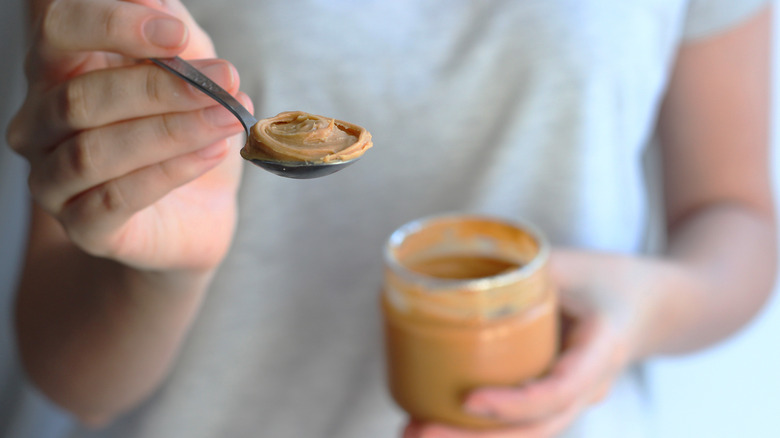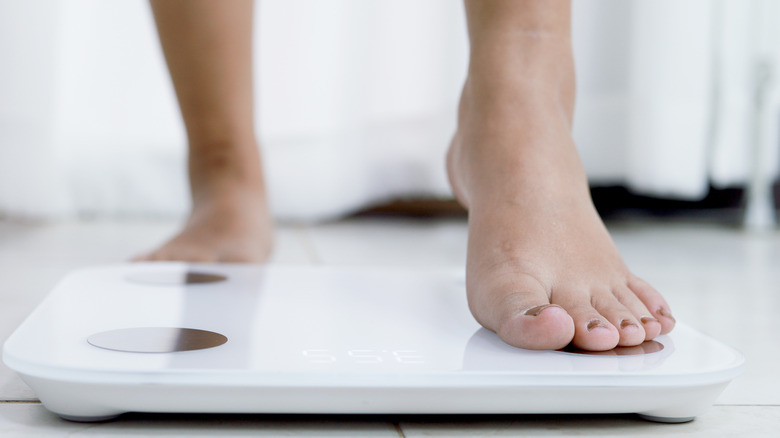What Really Happens To Your Body When You Eat Too Much Peanut Butter
Peanut butter is truly a beloved and versatile foodstuff. It goes great with jelly, honey, chocolate – or simply enjoying a spoon all by itself. This tasty spread dresses up everything from toast to cookies with its creamy, delicious flavor. So it's tough to admit that peanut butter isn't all sunshine and roses, and in fact can have some pretty undesirable side effects when overdone (so, maybe don't eat the whole jar in one sitting, as tempting as it is).
The issue is that, while peanut butter is ideally just roasted peanuts that are then ground into a paste-like substance, to make a jar shelf-stable, manufacturers have to add things like vegetable oil, sugar, and other sometimes undesirable ingredients. The add-ins lower peanut butter's health profile, and tacks on some trans fats to boot.
Although peanut butter in reasonable amounts is a-okay, it can sometimes be tough to keep serving sizes in check or to not eat it daily. Too much of the good stuff can unfortunately cause some undesirable results, according to Eat This, Not That!.
The problem with too much peanut butter
One of the major side effects of excessive PB consumption, says the article, is weight gain. Peanut butter is calorie-dense, which will help fill you up, but if you're watching calories, it's important to note a two-tablespoon serving clocks in right around 200 calories. That's a big chunk of the average person's recommended daily calorie intake.
Excessive peanut butter can also cause inflammation, due to all the extra omega-6 fatty acids. While omega-6 content is good, if not tempered with omega-3's to even the balance out, it can lead to some issues. Chronic inflammation can cause a range of systemic health problems, too, including fatigue, joint pain, and may even be linked to some types of cancer.
Another surprising side effect of too much peanut butter can be acid reflux and heartburn. Says Eat This, Not That!, this happens because peanuts contain a significant amount of fat. As a result, the lower esophageal sphincter muscle gets irritated and invites stomach acid to work its way into the esophagus, cueing the painful, burning sensation. Esophageal irritation can also lead to problems swallowing.
That's not to say the average person can't enjoy peanut butter. Just do so following serving size guidelines, and if possible, choose a brand with limited added ingredients. Choosing a more natural option will bring out the good side of this spread, including extra fiber and a great source of protein, two benefits that may also help promote healthy HDL cholesterol levels.

